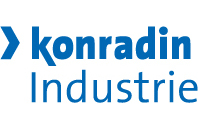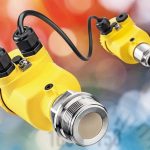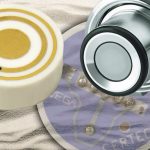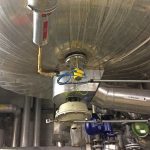Firmen im Artikel
Plastics have been manufactured on an industrial scale for over 100 years. Yet anyone who spent their childhood in the 1970’s or 80’s knows that the plastics of yesteryear have little in common with today’s special plastics. Their coveted cowboy and Indian toy figures quickly turned yellow and some of the Lego bricks have long become brittle. Plastics age due to thermo-oxidative degradation, i.e. under the influence of heat and oxygen. The fact that modern plastics can be colourfast and elastic, crystal clear, high gloss and abrasion or even heat-resistant is due to a wide variety of specialist additives.
The vapour pressure of liquids plays a decisive role in the production of such additives. Precise measurements not only contribute to BASF’s highly efficient control of special processes but also provide additional information on how process components can be optimised and plant availability increased. The following rule of thumb applies: the more precise the values, the clearer the processes and the greater the potential for optimisation. Extreme conditions can exist: aggressive substances and acids, which can adhere to vessel walls and form deposits, as well as high vacuum and steam levels. Through all this, the reliable measuring results of Vega pressure transmitters are decisive.
Silicone oil-free measurement
While conventional differential pressure transmitters were previously used for level measurements, BASF’s measurement and control engineers in Kaisten have now decided to replace their instrumentation. They have switched their process control over to electronic differential pressure, which is silicone oil-free, without capillary lines and therefore without mechanical pressure diaphragms. Thanks in no small part to the ceramic measuring cell, this system is ideal for vacuum and high temperatures. “The decision for electronic differential pressure on the basis of ceramic Certec measuring cells was an obvious choice, in view of their reliability in withstanding abrasive substances. Our plant is completely automated and operates 24 hours a day, 7 days a week”, emphasises Markus Stoll, BASF’s Head of Specialist Workshops EMSR, who together with his team ensures the highest possible plant availability.
Strong demand for additives
BASF is a leading manufacturer of plastic additives with sites around the globe. These large-volume substances are produced by around 260 employees in Kaisten, Switzerland, from where they find their way into plastics and lubricating oils. Under precisely defined pressure conditions, the raw materials are converted into additives in several chemical reaction steps. A fully automatic process control system continuously records each measured value and ensures precise dosing as well as highly efficient operation of the plant. Reliability is crucial because the end product is an essential intermediate for BASF. Downtime in this section has far-reaching consequences. “Even the smallest failure”, explains Stoll, “interrupts a complex process. In practical terms, this means weekend work and overtime for us.” Complex readjustments and meticulous analyses are unavoidable.
No experiments, please
Actually, measurement and control engineers work according to the principle “Never change a running system”. For processes to run smoothly, all production parameters must be precisely coordinated. It was only with the introduction of this new, oil-free pressure measurement technology that certain special features became apparent at BASF during the course of the changeover. Distillation, including that of a reaction mixture under vacuum, is based on different boiling points of the liquids involved and their different vapour pressures. The desired separation effect depends on the composition of the liquids and the steam. For each differential pressure measurement, the pressure transmitters are precisely matched to the media to be monitored. In addition, special separating diaphragms are installed between the measuring cells and the process to protect the former from high temperatures or moisture.
One system for two extremes
The highly robust ceramic Certec measuring cell in the BASF vacuum reactor was ideal for perfectly flush application in hot, aggressive solvents in the lower reactor section. In the upper reactor area, however, completely different conditions prevailed: here, the extreme steam caused condensation in the measuring cell and led to inaccuracies. Initially, the most practical solution was to use the differential pressure system based on metallic Metec measuring cells instead of ceramic cells. Condensate and humidity no longer had any negative influence. “The upper measured value remained acceptable and highly accurate in all situations”, Markus Stoll recalls. However, the high temperature of the solvent in the lower reactor area repeatedly caused measured value drift.
Combination for heat and condensate
It took expertise, a willingness to experiment and above all hand-in-hand work between BASF’s Measuring and Control Technology department and Jürgen Feser, the Key Account Manager at Vega, until everything was running smoothly. The surprising solution was to use an electronic differential pressure measurement system – with a combination of a ceramic and a metallic measuring cell. The two pressure transmitters record their respective values separately and calculate the differential in the master sensor. This is made possible by structurally identical instrument electronics behind the two very different measuring cells. They interact perfectly as a mixed doubles. “For our application, this combination is a real dream team”, says Feser with satisfaction. The bottom line result is “one” solution for two challenges: the ceramic measuring cell easily handles the high temperatures and aggressive substances in the lower reactor area (HP side). In the upper part or LP side, the metallic measuring cell performs optimally in the presence of condensation.
Conclusion
Even the most ingenious additive manufacturing process is only as good as the equipment in the production plant. In the case of BASF’s distillation reactors in Kaisten, the pressure transmitter sensors get the job done absolutely reliably, even in the most inhospitable locations – in the lower part of the vessel, where high temperatures of the aggressive, adhesive liquid prevail, and simultaneously in the upper part with steam and heavy condensation. The ideal solution for the differing process conditions inside a vessel turns out to be a simple variant of electronic differential pressure measurement from Vega: a combination of a ceramic Certec and a metallic Metec measuring cell.
Online search: cpp0318vega
Good to know: Why silicone oil-free?
In the 1970s, all major car companies rigorously declared their painting lines “silicone oil-free zones”. What was the reason? Time and again, mysterious paint defects occurred when painting vehicles. In the end, the unlikely cause was determined to be the hairspray used by some employees! Nowadays, considerably less hairspray is likely being used than on those “interesting perms” of that decade. However, since then, the regulations for silicone oil-free production have become a standard requirement in many industrial production areas. They cover mechanical equipment, components such as pipes, pumps, valves or hoses and suppliers are required to provide guarantees and documentation of their silicone oil-free production. BASF prohibits silicones in many production processes and areas at the Kaisten site.













